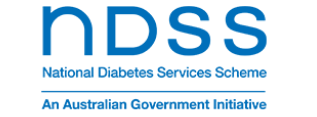A range of legal issues arise when considering how best to support students with diabetes in the school environment. They include, for example, issues surrounding the lawful possession and administration of prescription medication, the need to obtain consent from parents/guardians so that support may be lawfully provided by school staff, the need to protect the confidentiality and privacy of students and their health information, and the potential risk and liability of those who assist students in the school environment. Some of the below references relate to these different legal issues.
The legal landscape relevant to the management of students’ health conditions in the school environment is complex, particularly due to the mix of federal and state/territory laws. The exact legal position that applies to you will always depend on your individual and surrounding circumstances. The sources provided on this page are for information only and are intended to provide references to relevant laws, policies, and procedures that may apply. The information on this page does not constitute formal legal advice and should not be relied upon as such.
State and Commonwealth legislation
Disability Discrimination Act (1992) (Cth)
Anti-Discrimination Act 1991 (Qld)
Information Privacy Act 2009 (Qld)
Civil Liability Act 2003 (Qld)
Poisons legislation and administration of medication policies
Under the federal Poisons Standard, insulin and glucagon are ‘Schedule 4’ medicines (that is, prescription only medicines and likely to always be ‘Schedule 4’ medicines).
Medicines and Poisons Act 2019 (Qld)
Medicines and Poisons (Medicines) Regulation 2021 (QLD)
- See Schedule 13 of the Regulations, at Part 2 (titled ‘School workers’), which allows a principal of a school or the principal’s delegate to administer prescribed medication to a person in limited circumstances.
Department of Education (Qld) – Administration of medications in schools (May 2020)
Queensland Education Department policies specific to diabetes/health care and reasonable adjustments
Managing students’ Health Support Needs at School (Procedures) (July 2020)
State Schools Nursing Service (Qld)
Administration of medication procedures
International school study tour procedure (2023)
Safe Handling & Disposal of Needles and Syringes: Health and Safety Fact Sheet
Disclaimer
References in this document do not indicate an exclusive course of treatment or procedure to be followed. Variations, considering individual circumstances, may be appropriate. Internet addresses are current at time of publication.
Last updated: April 2025


